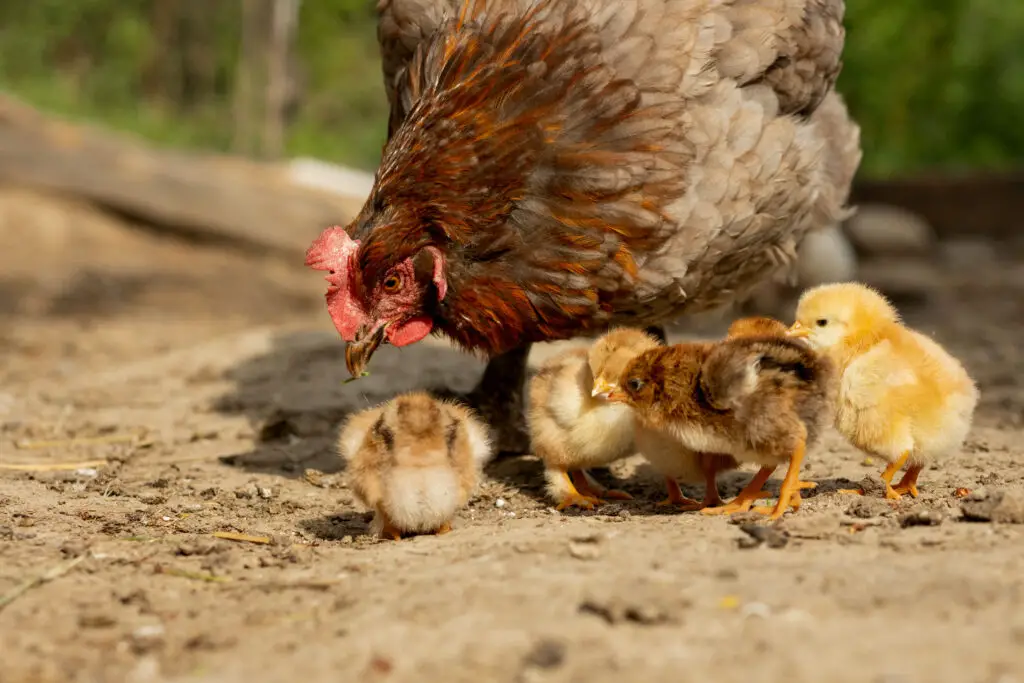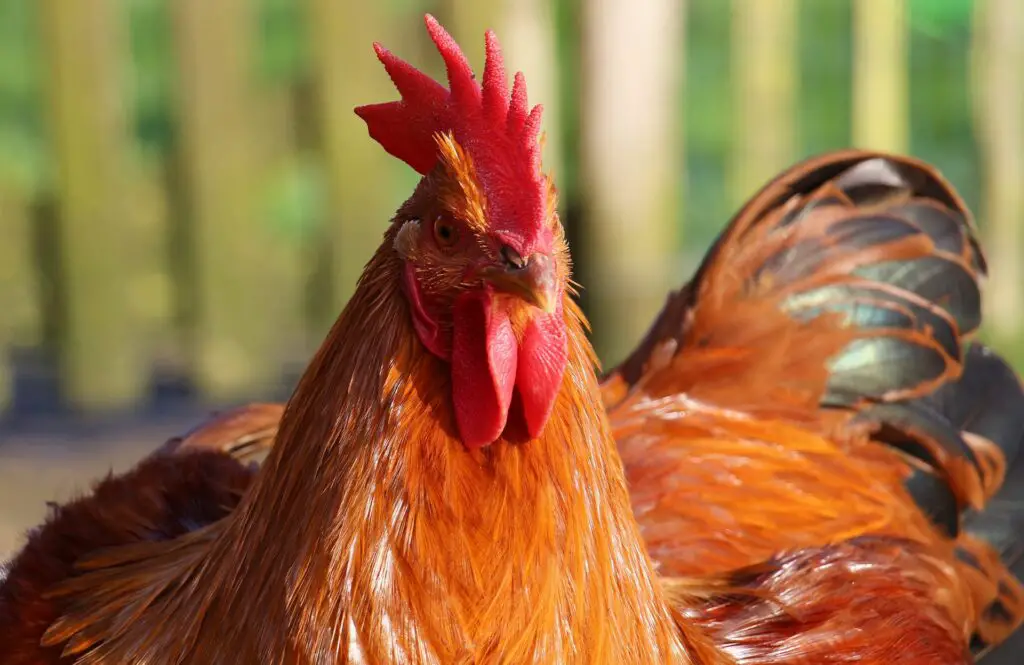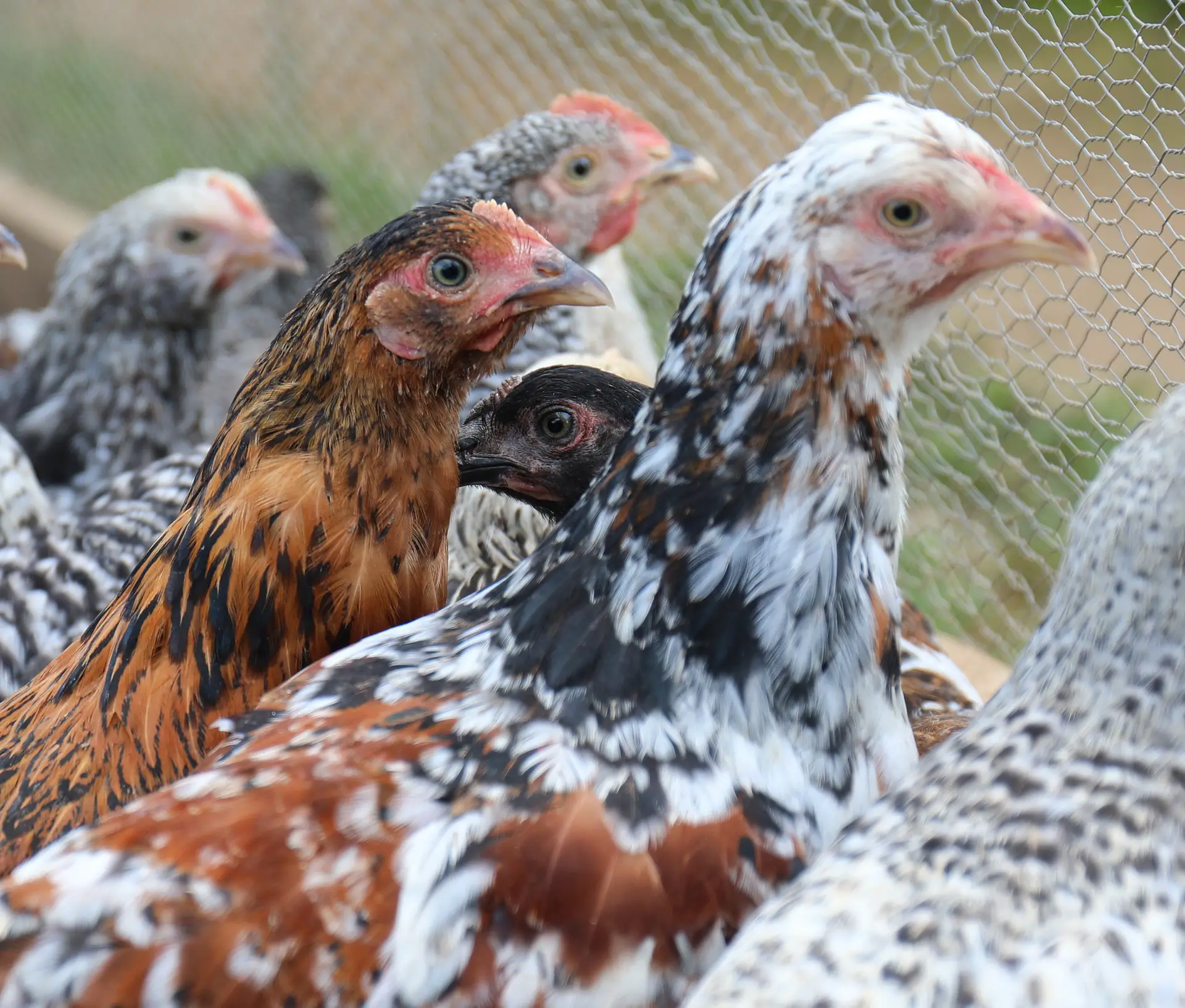Vitamin A plays a vital role in the health and well-being of chickens, contributing to various aspects of their growth, reproduction, and overall vitality. While chickens can naturally obtain some vitamin A through their diet, understanding its significance and ensuring proper supplementation is essential for poultry keepers.
In this blog post, we’ll delve into the importance of vitamin A for chickens, its sources, signs of deficiency, and how to ensure your flock receives an adequate supply.
You may also want to read about the best chicken feed.
Understanding Vitamin A for Chickens
Vitamin A is a fat-soluble vitamin essential for the growth, development, and overall health of chickens. It exists in two primary forms:
1. Preformed Vitamin A (Retinol):
Preformed vitamin A, also known as retinol, is found in animal-based food sources such as liver, egg yolks, and dairy products. Chickens can efficiently absorb this type of vitamin A.

2. Provitamin A (Carotenoids):
Provitamin A, or carotenoids, is found in plant-based sources like dark green leafy vegetables, orange and yellow fruits, and certain grains. Chickens can convert carotenoids into active vitamin A to meet their needs.
The Importance of Vitamin A for Chickens
Vitamin A is essential for various physiological processes in chickens, including:
1. Vision:
Vitamin A is critical for maintaining good eyesight in chickens. A deficiency can lead to poor vision and even blindness.
2. Growth and Development:
Vitamin A is necessary for proper growth and development, especially in young chicks. It supports bone growth and overall skeletal health.
3. Reproduction:
For breeding hens, vitamin A is crucial for optimal reproductive performance, including egg production and hatchability.
4. Immune System:
Vitamin A plays a role in maintaining a strong immune system, helping chickens resist infections and diseases.
5. Feather Health:
Healthy feather development and maintenance depend on adequate levels of vitamin A.
Signs of Vitamin A Deficiency
A deficiency in vitamin A can lead to various health issues in chickens, including:
- Eye Problems: Chickens with a vitamin A deficiency may develop eye disorders, including cloudiness, conjunctivitis, and even blindness.
- Respiratory Issues: Respiratory infections and issues can arise due to weakened mucous membranes in the respiratory tract.
- Reduced Egg Production: Laying hens may experience a drop in egg production, poor eggshell quality, and even reproductive problems.
- Skeletal Abnormalities: Young chickens may develop skeletal abnormalities, affecting their overall health and mobility.

Ensuring Adequate Vitamin A Supply
Providing your chickens with a balanced diet is key to ensuring they receive an adequate supply of vitamin A. Here are some strategies:
1. High-Quality Commercial Feed:
Start with a high-quality commercial poultry feed that is formulated to meet the nutritional needs of your chickens, including vitamin A.
2. Fresh Fruits and Vegetables:
Incorporate fresh fruits and vegetables into their diet, such as carrots, spinach, sweet potatoes, and kale, to provide additional sources of vitamin A.
3. Access to Insects and Greens:
Allow chickens access to insects and green forage, as these can contain carotenoids that chickens can convert into vitamin A.
4. Supplementation:
In cases of known deficiency or during specific life stages (e.g., breeding or growth phases), consider vitamin A supplementation. Consult with a poultry nutritionist or veterinarian for guidance on appropriate supplementation.
Conclusion to Vitamin A for Chickens
Vitamin A is a crucial nutrient for the health and productivity of chickens. Understanding its importance and providing a well-balanced diet with a variety of nutrient-rich foods is essential for ensuring your flock receives an adequate supply of this vital vitamin. By prioritizing their nutritional needs, you can help your chickens thrive, maintain good health, and contribute to their overall well-being.

